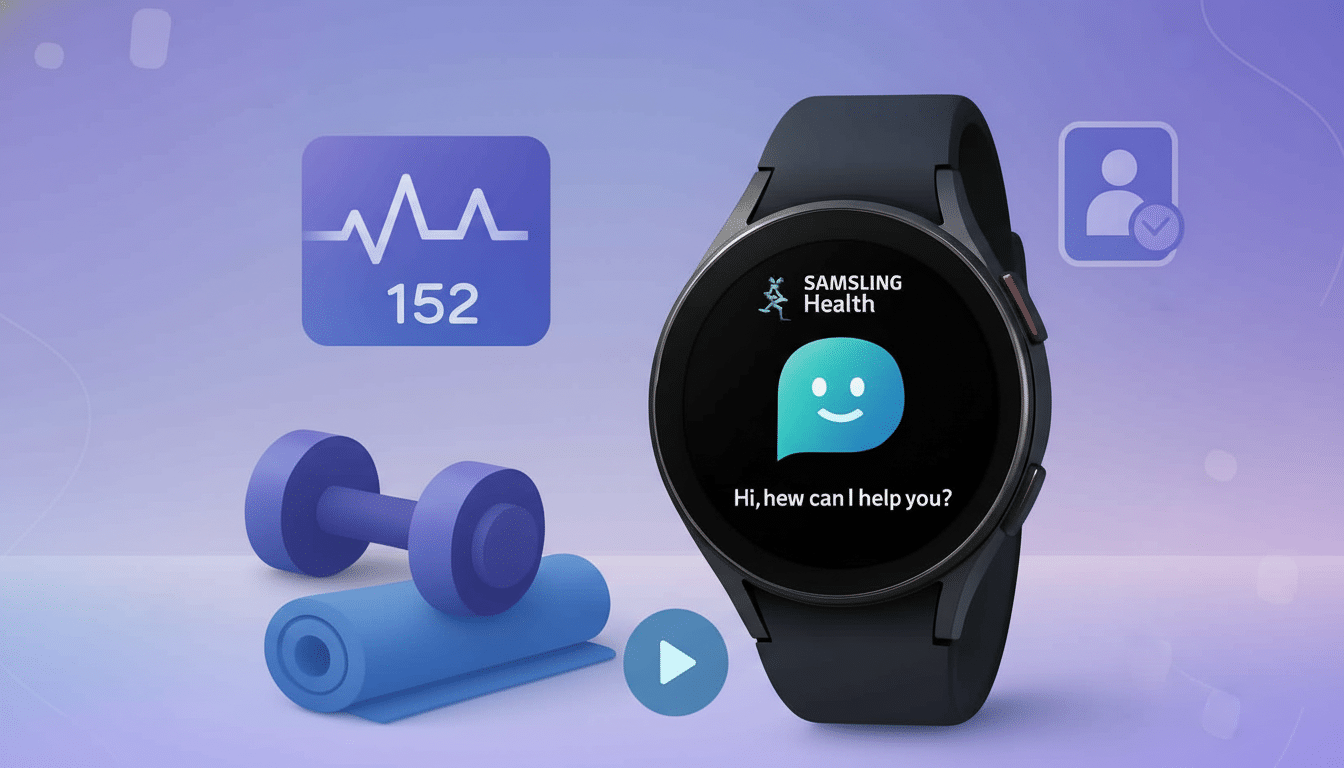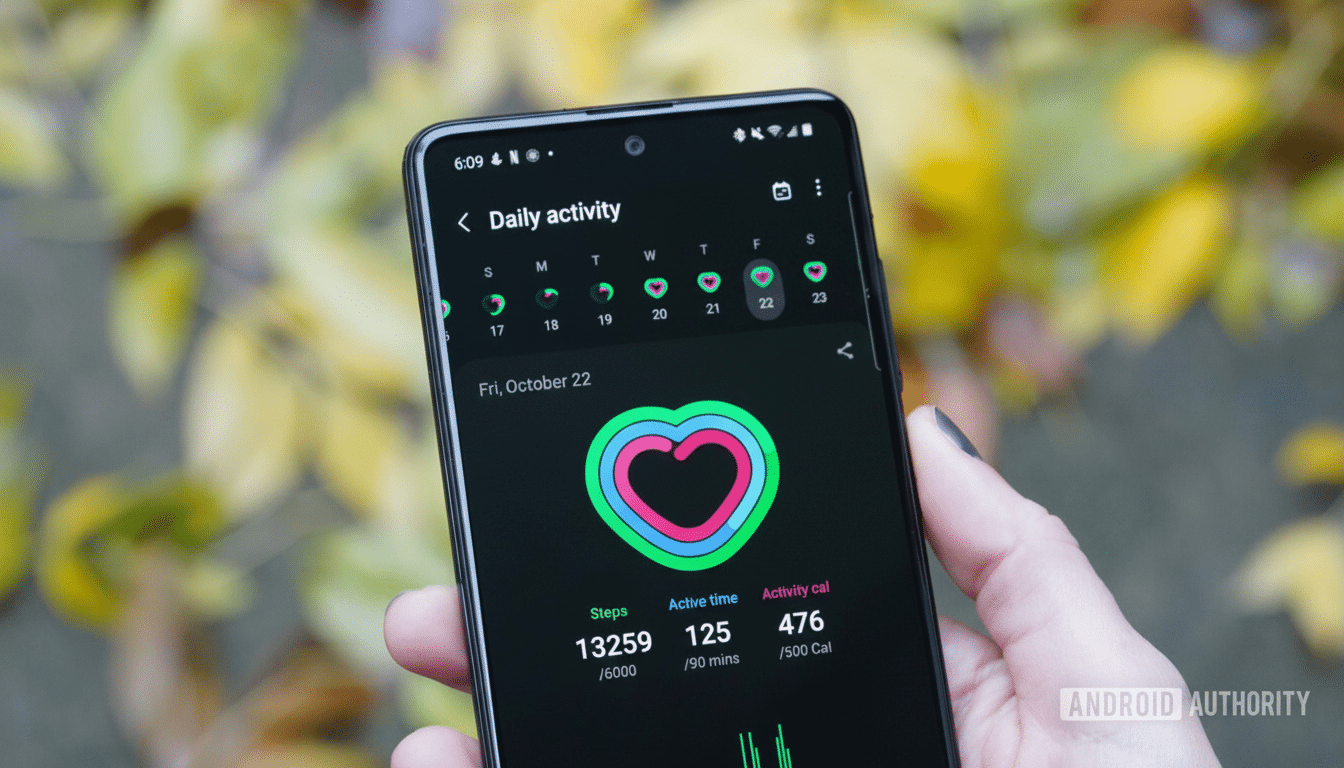Samsung seems to be working on an AI coach feature for its Health app, increasing the company’s efforts toward personal wellness advice on phones and watches. Mentions of a “Samsung Health Assistant” were found within a beta build by Android Authority, and it appears to be an in-app chatbot that can answer health and fitness questions, remind people about activity levels, offer insights around the data users are already collecting, among other things.
The aide is supposed to act as a conversational interface layered over Samsung Health’s dashboards, providing common-sense suggestions without edging into actual medicine. All signs suggest generative AI output, perhaps using the same model ecosystem that fuels Galaxy AI features and even the recent version of its own Galaxy Watch software.

What the Samsung Health Assistant can and cannot do
Per Android Authority’s discovery, the assistant can be queried about sleep, activity, and well-being in general, suggest little lifestyle changes to reach daily goals, and even prompt users to log meals, workouts, or symptoms. If your activity falls below your typical baseline, the coach might offer up some alternative actions, like short walks, rapid mobility workouts, or a more manageable step target — instead of just telling you that you are behind.
Crucially, it won’t diagnose or treat medical conditions, or triage medical concerns. That boundary is consistent with the positioning of most consumer wellness chatbots. Rather, you’ll find straightforward explanations of trends — such as how late-night screen time might influence sleep efficiency — or recommendations for optimizing your training load around recovery metrics.
The same way that AI can make instructions more personal using a digital instructor, Samsung has given a sneak peek at what this might mean for training with its Running Coach: it does some analysis of your performances and asks you a few questions to create personalized pacing plans. As in, Health Assistant feels like it has to go broader here, with context-aware pushes and suggestions that could include walking, strength, cycling, and maybe swimming depending on device abilities and what’s being logged.
How it could work on Galaxy phones and watches
Samsung’s watches monitor a variety of signals through the BioActive Sensor, including heart rate (HR), ECG, blood pressure during swimming, and performance levels during exercise. Paired with phone-based data — steps, GPS workouts, and nutrition logs — the assistant might be able to turn raw metrics into specific recommendations. If your sleep consistency flags, for example, it might suggest a wind-down pre-sleep routine and an easier workout day; if estimates of your VO2 max are climbing (or not), it could tell you when to sprinkle in intervals.
Given that Samsung has worked with Google on Wear OS and as Gemini is available across Galaxy experiences, it makes sense to anticipate a hybrid: some coaching responses created on-device for privacy and speed, but cloud processing taking care of more sophisticated questions. The beta displays a simple entry point — a chat icon in the top-right corner of the Health app — so it could be something that’s one-touch away from your daily dashboards.
Why it won’t dispense medical advice or diagnoses
When it comes to regulated claims, consumer wellness assistants steer clear. In the United States, there is guidance, and the FDA distinguishes between general wellness tools and medical devices. There is a risk that diagnosing or advising on treatment could nudge software into a regulated area, where final clinical validation and approval are needed. By maintaining its emphasis on education, behavior change, and goal support, Samsung can broadly scale the feature without falling into the clinical compliance rabbit hole.

That limitation doesn’t diminish the assistant’s usefulness; it sets expectations appropriately. Think of it as an educated coach who reads your exercise and sleep trends, but not a substitute for a clinician.
Launch expectations, availability, and how to access
Android Authority notes the feature is in beta and will be made available in an upcoming release of Samsung Health. Access seemingly resides behind a chat bubble at the top-right of the app. Although Samsung hasn’t provided details on supported regions or devices, previous feature rollouts have seen newer Galaxy phones and recent Galaxy Watch models getting access shortly after, based on the market in which you’re located, inherently linked to health feature approvals.
The competitive context: a sweep of AI coaches
Wearable brands are rushing to slap AI on top of sensor data. Whoop recently introduced an AI coach bringing strain, sleep, and recovery together. Oura included an experimental assistant to guide users through their readiness and sleep patterns. Google has teased plans for a revamp of the Fitbit experience that includes more proactive insights. Apple is said to be considering similar features for its own ecosystem.
Samsung’s advantage is distribution. The Samsung Health app has been installed over a billion times from Google Play, and Galaxy Watches are making strides among Android users. If Health Assistant can offer robust advice without becoming annoying, it could become one of the most popular AI wellness tools overnight.
What to watch next as Samsung tests the assistant
Two things will decide whether this feature will stick: the quality of its guidance and the transparency of its data management. When possible, users will seek reliable sources, sensible explanations, and the ability to keep processing on-device. Robust privacy controls, explicit opt-ins, and the option to delete conversations will be table stakes.
If Samsung gets personalization right — timely nudges, rest days that are context-aware, and useful explanations of trends — the Health Assistant could move from fun demo to daily habit. Ku said that for now, the beta points toward a practical goal: make all your fitness and sleep data into user-friendly coaching that meets people where they are.

